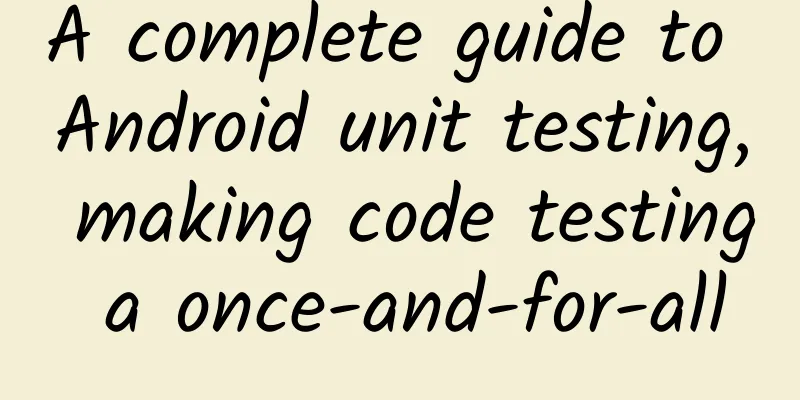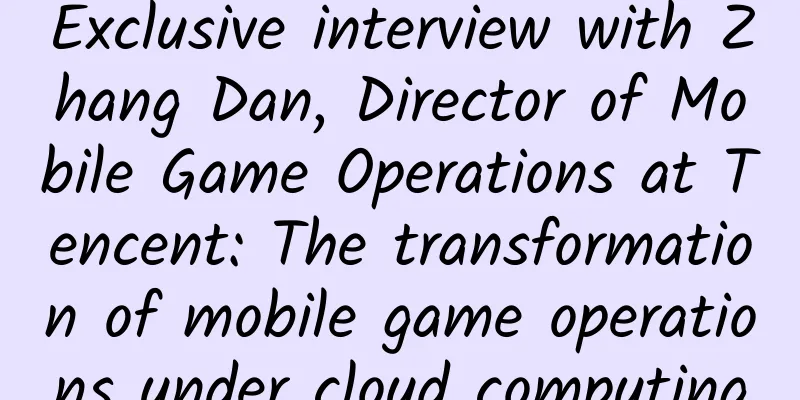The "white-haired academician" gave a lecture online, and netizens exclaimed, "This is the star we want to chase"

|
▲Liu Jiaqi, an academician of the Chinese Academy of Sciences, teaches at the "Academician Lectures" event. (Photo provided by the interviewee) Xiao Xu is a junior student majoring in geology at a university in Beijing. One recent noon, he took back his takeaway, opened the phone holder, and prepared to eat lunch while watching short videos. After a while, he saw an online lecture by a "big shot" in the subject, and clicked on it with great interest. While eating, he watched, and more than 50 minutes passed in a flash... Recently, there are many netizens who have similar experiences as Xiao Xu. Everyone has found that they can often see lectures on the short video platform "Science and Technology Innovation in China·Academicians Lectures". The lecturers in the video are all academicians of the Chinese Academy of Sciences and the Chinese Academy of Engineering: 91-year-old Academician Xu Zhilei, one of China's first strategic weapons research experts; 80-year-old Academician Liu Jiaqi, who has visited the Qinghai-Tibet Plateau seven times, the Arctic three times, and the Antarctic twice, with footprints all over the world; Academician Mao Ming of the Chinese Academy of Sciences, who has won two first prizes in the National Science and Technology Progress Award and led the development of the world's leading 99A main battle tank... Many netizens clicked in with a “give it a try” mentality and actually listened with great interest, saying, “I never thought I could take a class taught by an academician in this lifetime” and “I’m really successful. I actually understood the lectures given by the academician”. Some netizens were still fascinated by the show after listening to it and urged for the next episode in the comment section. According to statistics, since the first episode was launched on October 29 last year, the total number of views of the six episodes of "Science Innovation China: Academicians Lecture" has exceeded 30 million. While this program has set off a wave of popular science enthusiasm, it has also made more and more netizens become "knowledge fans" of the academicians in seconds. The stories of the academicians are both exciting and heartwarming Liu Jiaqi, an academician of the Chinese Academy of Sciences, is a famous volcanic geologist and Quaternary geologist in my country. He often jokes that he is a "post-80s". In his speech, Liu Jiaqi emphasized that geology, which seems to be unpopular, is actually closely related to popular subjects such as aerospace engineering. "In the past, some astronauts were not convinced and said that when a spacecraft goes into space, do you, who study geology, also need to direct it? I said, we don't care about going into space, but we do care about what we do there, such as where to land, what samples to take after landing, and how to take them. These are all our business. Many of the samples brought back from the moon are analyzed here," Liu Jiaqi joked at an "Academician Lecture" in November last year. Liu Jiaqi has visited Changbai Mountain ten times, the Qinghai-Tibet Plateau seven times, the Arctic three times, the Antarctic twice, and visited and investigated more than 60 countries and regions. He was the first to identify the temporal and spatial distribution and rock geochemical characteristics of my country's volcanoes, bringing China's research on the laws of Cenozoic volcanic activity to international standards. He used his own actual experience to encourage young people: In the most precious years of life, you should cherish time and be particularly accomplished. Don't wait to do many things later, as it will be too late. Academician Xu Zhilei has been involved in the research of "two bombs and one satellite" since 1963, and has a glorious past and honors. He sat in front of the camera and talked with netizens about "disruptive innovation". He understood that innovation is to subvert tradition. This "subversion" is not only about the replacement of technology, but also about "valuing people's value". At the end of the show, he was still thinking about the problem of "staying up late" among young people: the secret to maintaining enthusiasm is to ensure good eating and sleeping in daily life. Without adequate sleep, one will not be able to think about problems well. "China's amphibious vehicles are the fastest in the world!" Mao Ming was full of pride at the podium. Mao Ming, an academician of the Chinese Academy of Sciences, is dressed simply and has gray hair. On October 26 last year, he stood on the podium of the "Academician Lecture" and told netizens about what he thought was a "crazy" thing - making a tank "fly" on the water. Mao Ming proposed an innovative idea - designing a deformable vehicle body, successfully breaking the technical "bottleneck" of engine output limitation and perfectly solving the problem of amphibious vehicles' slow speed in water. Mao Ming has won two first prizes in national science and technology progress and one first prize in national defense technology invention, and has made significant achievements in weapons industry research. One of his "secrets" is his determination to fight his way out in extremely harsh environments. During his decades of research career, Mao Ming has repeatedly braved the dangers of going deep into extremely cold and hot areas to conduct tank experiments. Even the harsh environment of the Northeast test site with a cold wind and minus 40 degrees Celsius could not stop his passion for scientific research. Under his leadership and design, China has produced the world's first information-based tank - the Type 99A tank. When top scientists break the "dimensional wall" and spread knowledge through online lectures and communicate with the general public across the air, their spirit is also inspiring a new generation of young people. The "chemical reaction" of "Internet + technological innovation knowledge dissemination" At present, China is on the road from a "big science and technology country" to a "strong science and technology country". Although scientific and technological innovation in major fields has made continuous breakthroughs, it is still "thirsty" for scientific innovation, especially innovation in basic theories of natural sciences. This requires cultivating a large number of young people who are interested in natural sciences and stimulating their enthusiasm for scientific research and innovation. In addition, the dissemination of knowledge on the Internet is mixed, some true and some false, which leads to some pseudoscience often "taking advantage of loopholes" and misleading many people. Based on this realistic background, the "Science and Technology Innovation Platform" of the China Association for Science and Technology has joined forces with Douyin, Xigua Video and Toutiao to launch the "Academician Lecture" column. This column strives to combine the strengthening of authoritative scientific knowledge dissemination with the expansion of knowledge dissemination through the "Internet + Science and Technology Innovation Knowledge Dissemination" method, thereby arousing a wonderful "chemical reaction" between the scientist group and the Internet platform. The guests of the column are all academicians of the Chinese Academy of Sciences and the Chinese Academy of Engineering. They are at the forefront of science and technology in the fields of tank innovation, high-speed rail safety, geology and lunar engineering, and share top scientific knowledge and rich life experiences through online lectures. Many of these academicians are in their 80s and 90s and are authorities in their respective fields. They share knowledge online in an easy-to-understand way and interact cordially with netizens. Their spirit of painstaking research and their perseverance in climbing the peak of science and technology have also touched many netizens. "It was unexpected that millions of people watched one episode. Short video platforms are a new and good stage for spreading scientific knowledge," said Academician Liu Jiaqi. In his opinion, the academicians stepped out of their study, laboratory and classroom to share knowledge with the public. This form of knowledge sharing not only has a strong appeal to science enthusiasts, but also has a huge diffusion capacity in the dissemination of scientific knowledge and innovative spirit. Moreover, the powerful dissemination effect, combined with the communication and interaction with netizens, also brought the academicians and netizens who watched the lecture videos closer to each other, both in terms of knowledge and emotion. Netizen: This is the "star" we want to chase In fact, on short video platforms, in addition to popular science lectures by academicians, short videos about scientists’ inspirational stories and scientific research spirit have already become popular. Taking the Douyin short video platform as an example, the reading volume of topics related to the late father of hybrid rice, Yuan Longping, is nearly 9 billion. When the Shenzhou 13 successfully flew into space carrying the enthusiasm of the people across the country, the search volume of related videos on Douyin reached 1.04 billion. The reading volume of topics related to female astronaut Wang Yaping exceeded 500 million. The scientific research stories related to astronauts also touched countless netizens in front of the screen. On March 22, 2021, Peng Shilu, the son of martyr Peng Pai and the first chief designer of my country's nuclear submarine, passed away. The Xinhua Daily Telegraph Douyin account broadcast a short video of his last appearance before his death to encourage the younger generation of nuclear industry workers. It quickly became a hit. The 21-second content has been viewed more than 10 million times and received nearly 1 million likes. Whenever the stories of outstanding scientists become known to the public through short videos, there will always be netizens in the comment section who will say “This is the ‘star’ we want to chase.” This simple comment can easily gain widespread response from netizens, and this comment alone can receive hundreds of thousands of likes. Through the short video, people found that scientists are not out of reach. They are just as keen on expressing and conveying ideas as ordinary people. However, in their eyes, the inheritance of scientific innovation spirit and the breakthrough of scientific research results are their lifelong pursuits that they are willing to devote themselves to. Nowadays, pan-knowledge short videos are rising and becoming a new trend. According to Zhang Fuping, vice president and editor-in-chief of Beijing Zitiao Network Technology Co., Ltd., "The number of pan-knowledge short videos has accounted for 20% of the total number of videos played on the platform. One out of every five videos people watch is a pan-knowledge video. At the same time, there have been more than 1 million pan-knowledge live broadcasts on Douyin. Technology innovation content is becoming one of the most popular content for platform users." On the short video platform, people have the opportunity to listen to astronomers from the National Astronomical Observatory talk about the stars and the sea, listen to senior physics professors use their childhood anecdotes to interpret physics that people find confusing, and have the opportunity to learn about aesthetics, atmospheric physics, geology and other subjects that seem unpopular but are actually interesting through live broadcasts. Scientists also have an additional channel to share knowledge and show themselves. As one netizen said in the comment section of the "Academicians Speak" program: "The knowledge and spirit that scientists and academicians output will make up for the daily growth of ordinary people. Even if it cannot change the trajectory of our lives, at least when people look back at these people who are deeply engaged in scientific research and constantly pushing the motherland forward, they will be moved by their courage to delve into research." (Reporter Mo Xin) Source: Xinhua Daily Telegraph |
<<: Science in the Week: Will Tying Your Hair Often Make Your Hairline Higher?
Recommend
The best display ever? An in-depth analysis of the iPhone 7 screen
When you first see the iPhone 7 screen, to be hon...
Alipay's counterattack cuts off WeChat's back door, making Ma Huateng anxious
Apple's strong forcing of the WeChat reward f...
Is it the user's or the manufacturer's responsibility? Explanation of the Land Rover 9AT gearbox "failure"
In fact, the exposure of the 315 Gala did not cau...
Are peanuts harmful or beneficial? How to eat them more healthily?
Peanuts are not unfamiliar to us. They are also k...
Content Marketing Trends in 2017 (Part 1)
Content Marketing Trends in 2017 (Part 2) Preface...
Animation: Interpolator usage and customization details
[[438230]] Preface Property animation can animate...
Android source code download: My Gesture Lock
Functional classification: Tools Supported platfo...
This carcinogenic toxin exists in every home! When cleaning, you must pay attention to these 3 places!
How often do you clean your house? Once every two...
3 tips to improve your product conversion effect!
We can actually use product conversion rate to me...
Only by deceiving the fat can you truly lose weight!
Fat is the most hated tissue in the body (no doub...
Hot search! Quan Hongchan: Spend half an hour tying bandages before diving! What are bandages for?
Review expert: Wang Xuejiang, professor of pathop...
Former Sony executive: Still skeptical about the prospects of virtual reality? It's time to put your concerns aside
Ian Hetherington, a former Sony executive, recent...
New Media Operation丨How to design the layout for your article?
Many new media operators are concerned about how ...
I never thought that WeChat's collection notes have 6 practical functions hidden in them. Learning them is a great way to gain knowledge.
[[399988]] First open WeChat and click "Me&q...
TLAttributedLabel Image and text mashup
Source code introduction: TLAttributedLabel image...









